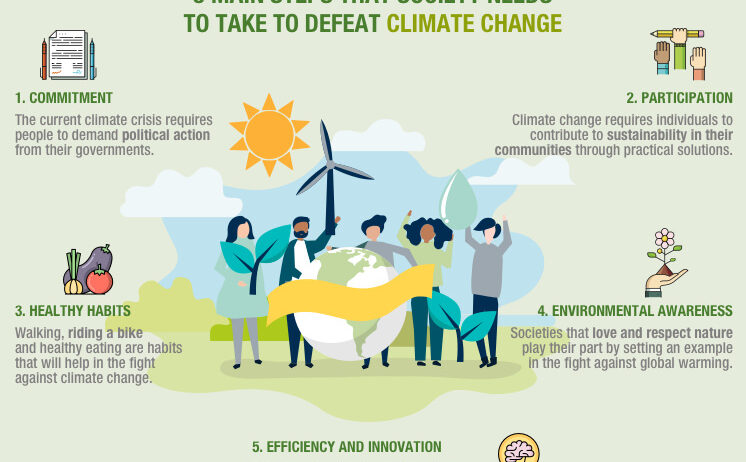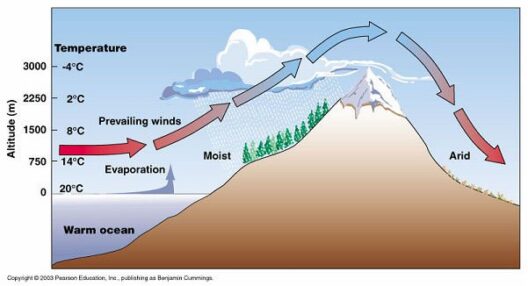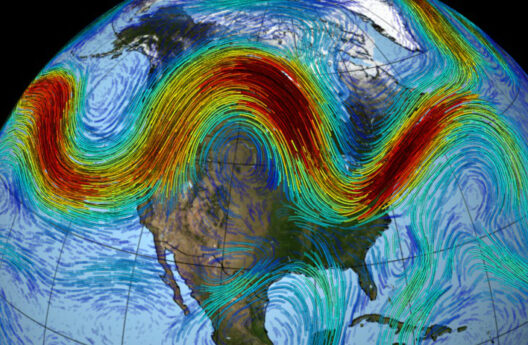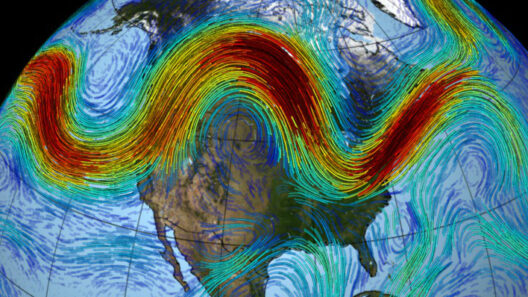Climate change is one of the most formidable challenges humanity faces today. It is an intricately woven tapestry of environmental degradation, social injustice, and economic imbalance. While the enormity of the issue may seem insurmountable, the role of individuals in mitigating climate change is both significant and transformative. This article explores the myriad ways in which individual actions can collectively usher in a paradigm shift, illuminate pathways to sustainability, and ultimately foster a thriving planet.
Understanding the gravity of climate change is paramount. The Earth is experiencing unprecedented warming, primarily due to anthropogenic emissions of greenhouse gases. From rising sea levels to extreme weather patterns, the manifestations of climate change are palpable. However, amidst this bleak narrative lies a potent truth: individual actions can reverberate throughout communities, inspiring broader systemic change.
First and foremost, embracing sustainable living practices within one’s household can create significant environmental ripples. By adopting energy-efficient appliances and light bulbs, an individual can reduce energy consumption considerably. In addition, switching to renewable energy sources, such as solar panels, empowers homeowners to harness nature’s raw power responsibly. Not only does this reduce dependence on fossil fuels, but it also diminishes the carbon footprint, allowing households to become stewards of the earth.
Moreover, the choices we make in our diets are pivotal. The production of food, particularly animal-based products, is a leading contributor to greenhouse gas emissions. By incorporating more plant-based meals into our diets, individuals can drastically lower their carbon impact. Furthermore, opting for locally sourced and seasonal produce supports sustainable farming practices and reduces transportation emissions. This shift not only nourishes the body but also fosters a profound connection with local ecosystems, creating a vibrant community ethos around food.
No discussion about individual impact on climate change would be complete without addressing transportation. Traditional vehicles operating on fossil fuels are major contributors to air pollution. By pivoting towards public transport, carpooling, biking, or walking, individuals reduce not just their carbon emissions but also encourage a fundamental cultural shift towards sustainable urban mobility. Electric vehicles present another viable alternative, aligning personal transport needs with environmental responsibility. The mere act of choosing your mode of transport can influence city planning and public transport development, creating a sustainable transit ecosystem.
Water conservation is another arena where individual action is invaluable. The depletion of freshwater resources is a pressing issue exacerbated by climate change. Simple modifications in domestic water usage—like fixing leaks, employing water-efficient gardening practices, and collecting rainwater—can greatly shrink one’s water footprint. These practices not only conserve precious resources but also promote a culture of awareness and respect for the natural world.
Yet, individual impact transcends personal habits; it encompasses advocacy and community engagement. Grassroots movements have proven instrumental in shaping policy and influencing multisectoral change. Becoming an advocate for climate action—whether through participating in local environmental groups, voting for climate-conscious policies, or organizing community clean-up events—allows individuals to amplify their voices. Educating oneself and others about environmental issues fosters a culture of responsibility and inspires collective action. Knowledge is empowering; it equips individuals with tools to challenge unsustainable practices and push for systemic change.
Moreover, connecting with like-minded individuals can bolster efforts to combat climate change. Groups focused on environmental stewardship create a supportive network that fosters collaboration, innovation, and idea-sharing. By collaborating on community projects—such as tree planting initiatives or urban gardening—individuals create tangible impacts while nurturing social bonds. These synergies not only strengthen community ties but also cultivate a shared commitment to sustainability.
On an even grander scale, financial choices play a critical role in climate action. Supporting companies and investments that prioritize sustainability can shift market dynamics. Ethical consumerism—choosing products from businesses that uphold environmentally responsible practices—can drive corporate accountability and lead to an overall reduction in environmental degradation. By demanding transparency and sustainability from companies, individuals wield purchasing power that can catalyze widespread change.
Furthermore, one cannot overlook the importance of education in combatting climate change. Aspiring climate advocates should continually seek knowledge. Engaging with literature, documentaries, and workshops enhances understanding of climate issues and equips individuals with the tools necessary to advocate effectively. An informed public is essential for sustainable progress; education is the cornerstone upon which actionable initiatives are built.
Lastly, it is essential to cultivate a mindset that embraces resilience amidst the daunting challenge of climate change. The path to a sustainable future is fraught with hurdles, yet individual commitment to this cause is unwaveringly vital. Recognizing that every action—no matter how seemingly insignificant—contributes to a wider narrative of change allows individuals to give themselves grace while remaining vigilant in their endeavors.
In conclusion, individuals possess the capacity to be catalysts for change in the ongoing battle against climate change. Through conscientious lifestyle choices, community engagement, advocacy, and ethical consumption, each person can contribute to a more sustainable world. The collective impact of countless individuals choosing to act responsibly reveals a profound truth: your impact matters. It is not solely a matter of despair but rather a clarion call to hope and action. Together, through individual commitment and unity, it is possible to build an equitable, sustainable future for generations to come.








